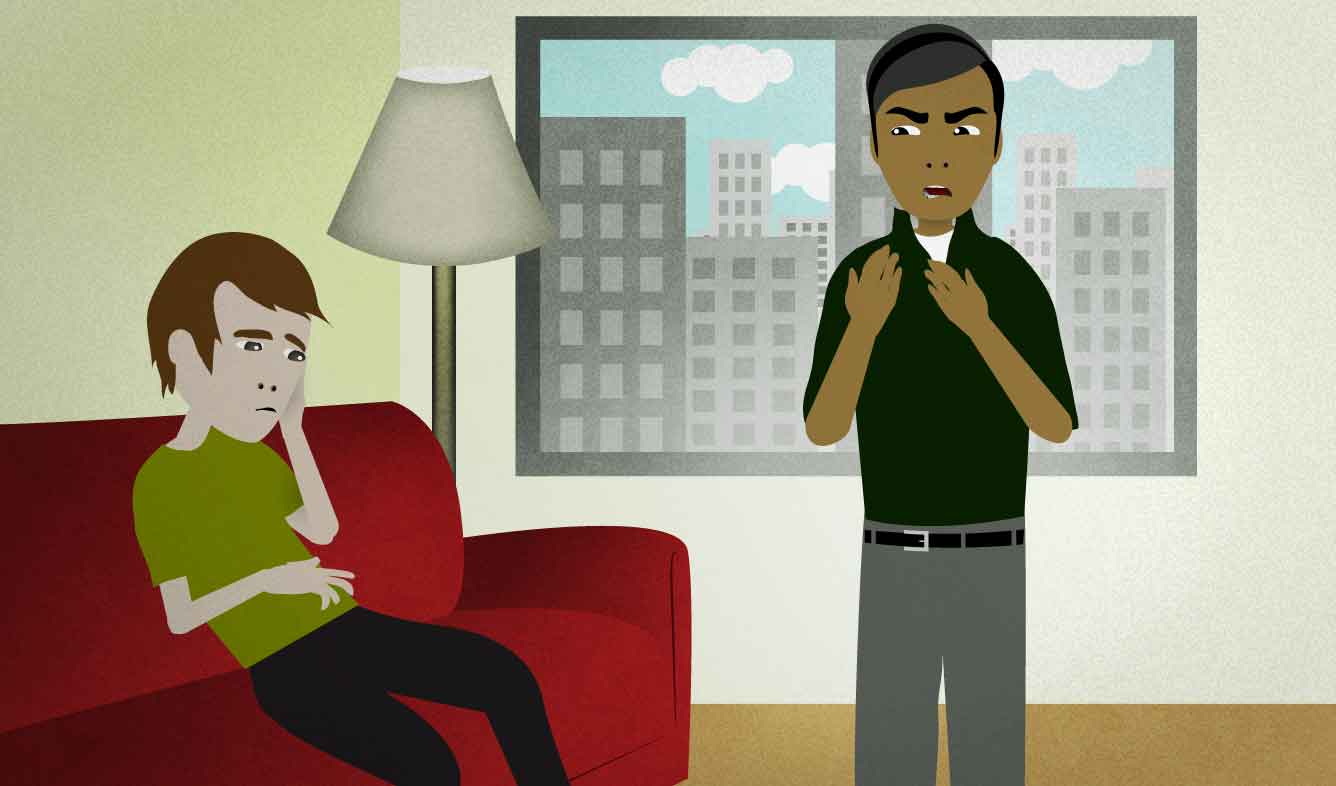“You can't just sit around feeling sorry for yourself forever.”
Your roommate broke up with his girlfriend two weeks ago. Since then, he's been at home every day and seems depressed. You don't want to see him being depressed any longer. So you say this to try to encourage him to go out and have fun with other people.
You can't just sit around feeling sorry for yourself forever.
Want Video and Sound? Follow us on YouTube

You can't just (do something)
Use this phrase when you're giving someone advice:
You can't just give up!
You can't just show up to class the day before the test and expect to get caught up with everything.
You can't just pack up your bags and move to a whole new city, where you don't even know anyone.
Or you can scold or criticize them:
You can't just call in sick whenever you feel like it.
You can't just walk in without an appointment.
sit around (doing something)
To "sit around ___ing" means to do something lazily. Here are some of the best examples:
sit around watching TV
sit around on the Internet
sit around talking to your friends (when you're supposed to be working or studying)
sit around waiting for something
This is a negative phrase. You usually use it when you're complaining about someone who seems lazy.
feeling sorry for yourself/myself
This means to think a lot about your own problems. A person who is "feeling sorry for" him- or herself is not only sad, but also thinking things like:
- "Why did this have to happen to me?"
- "It's not fair!"
- "No one loves me."
- "Everything is ruined now!"
"Feeling sorry for yourself" is never a good thing. Saying that someone "is feeling sorry for" him- or herself makes it seem like they're childish and immature.
You can also say this about yourself:
After that, I started to feel even more sorry for myself.
